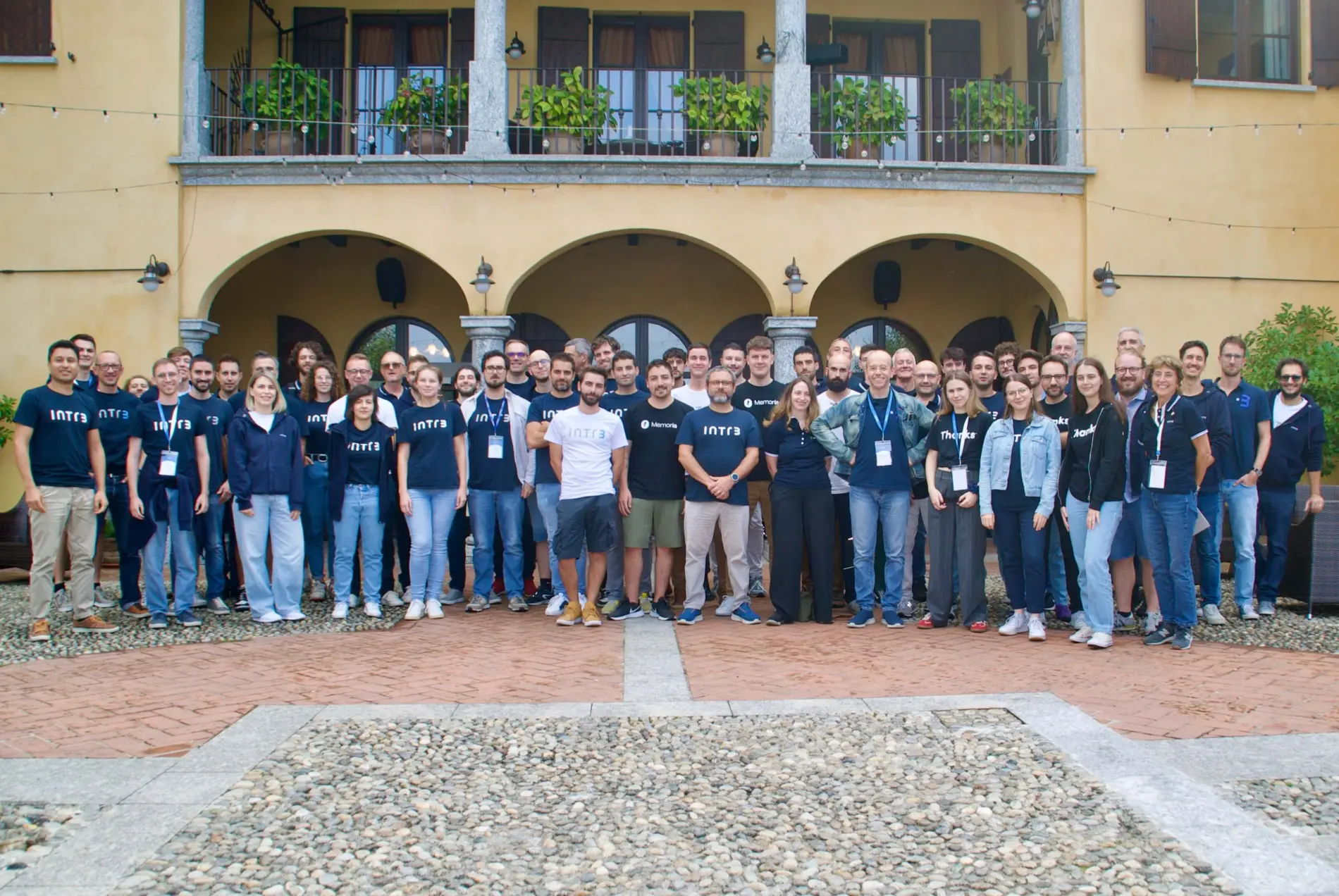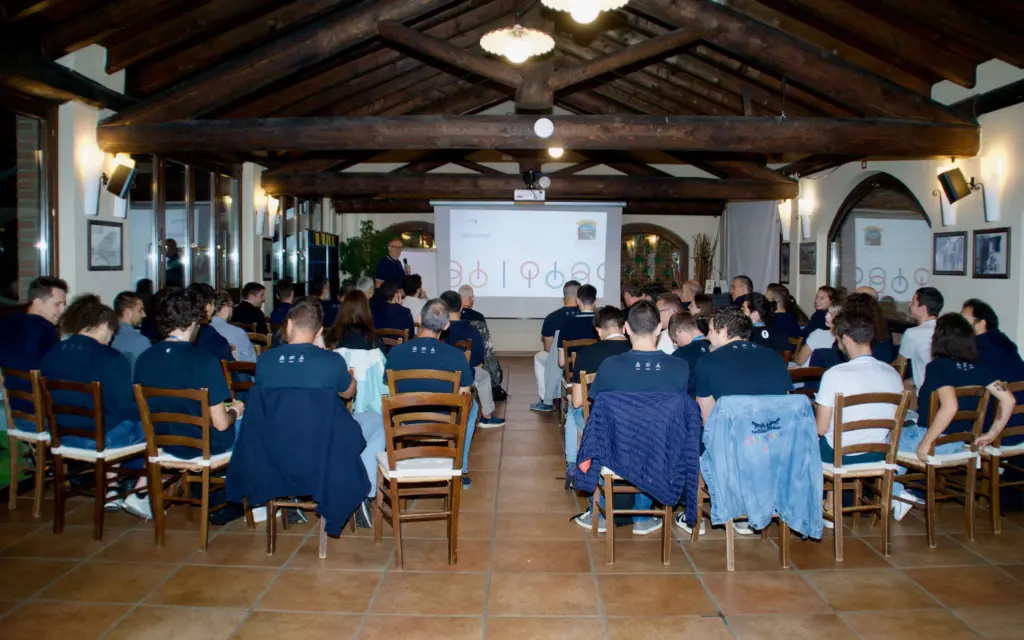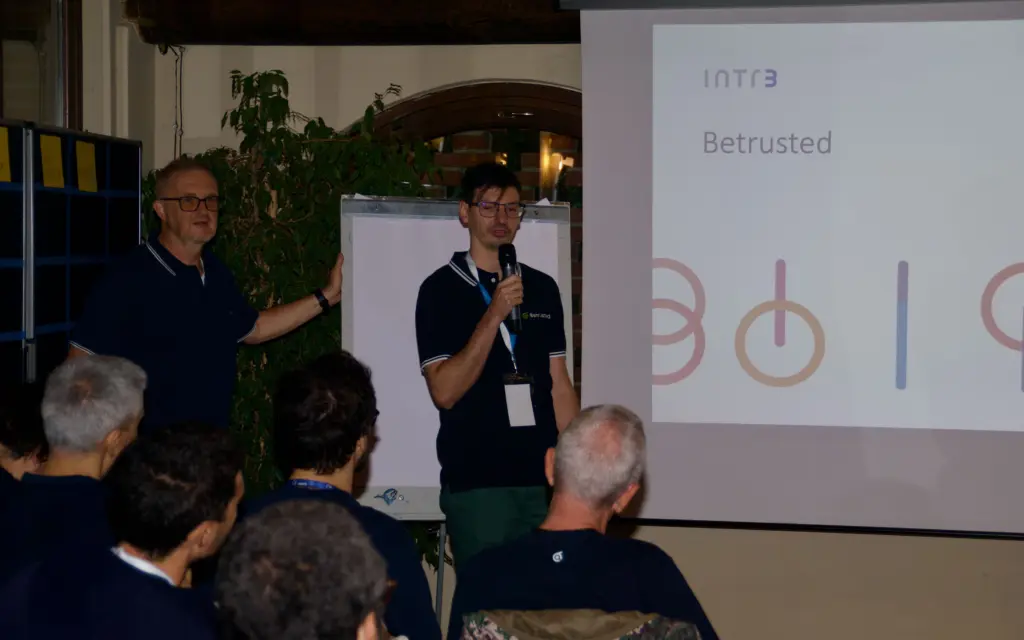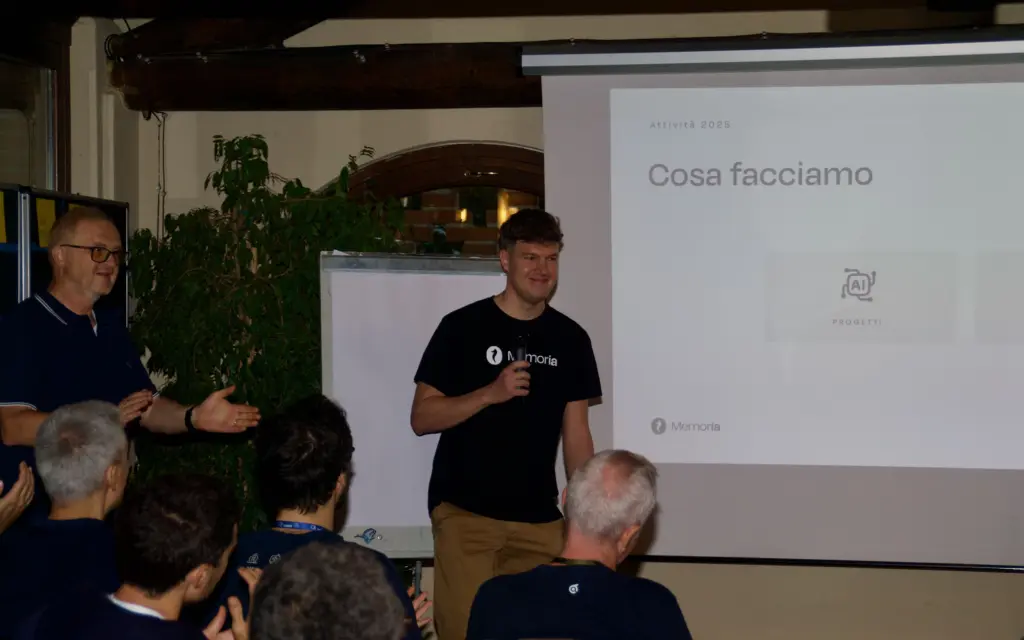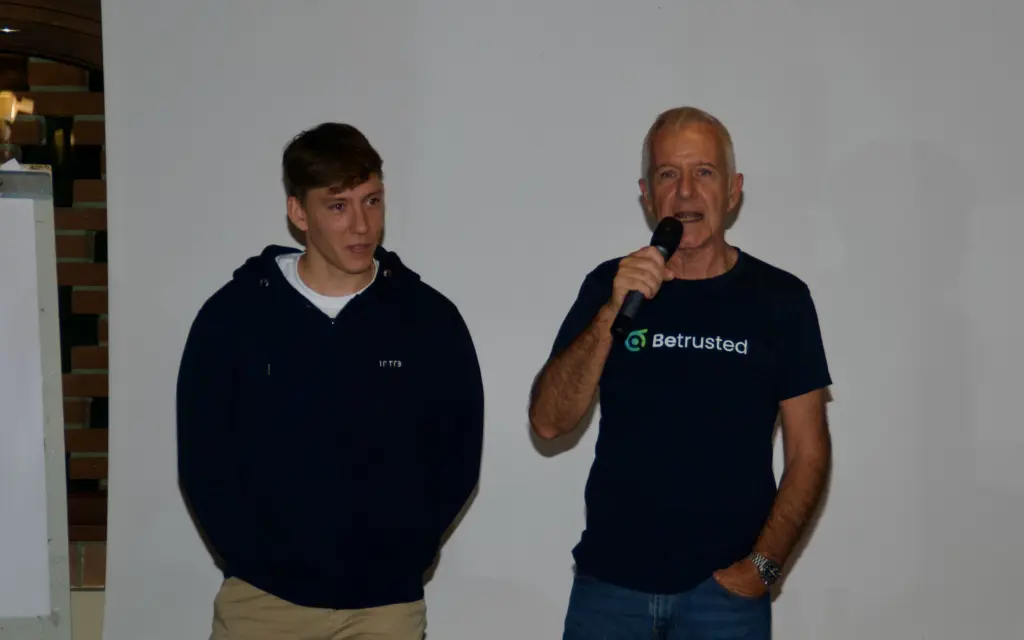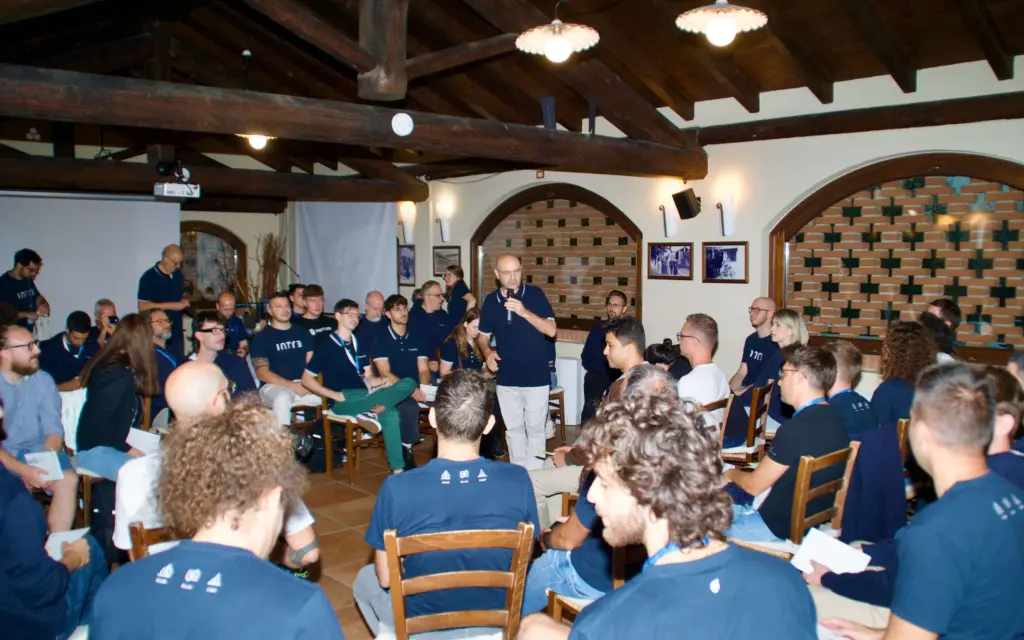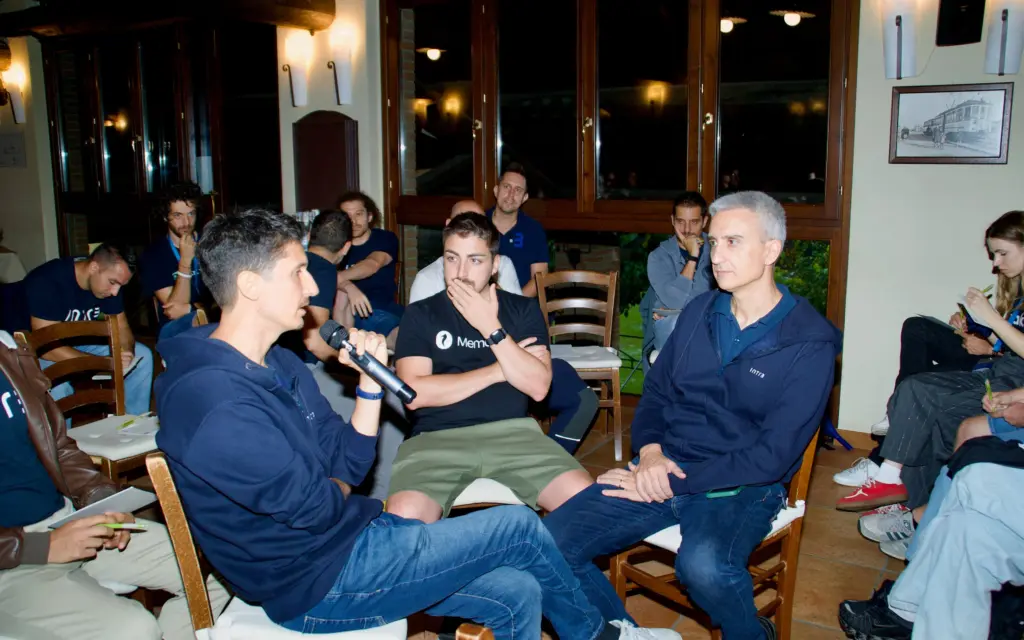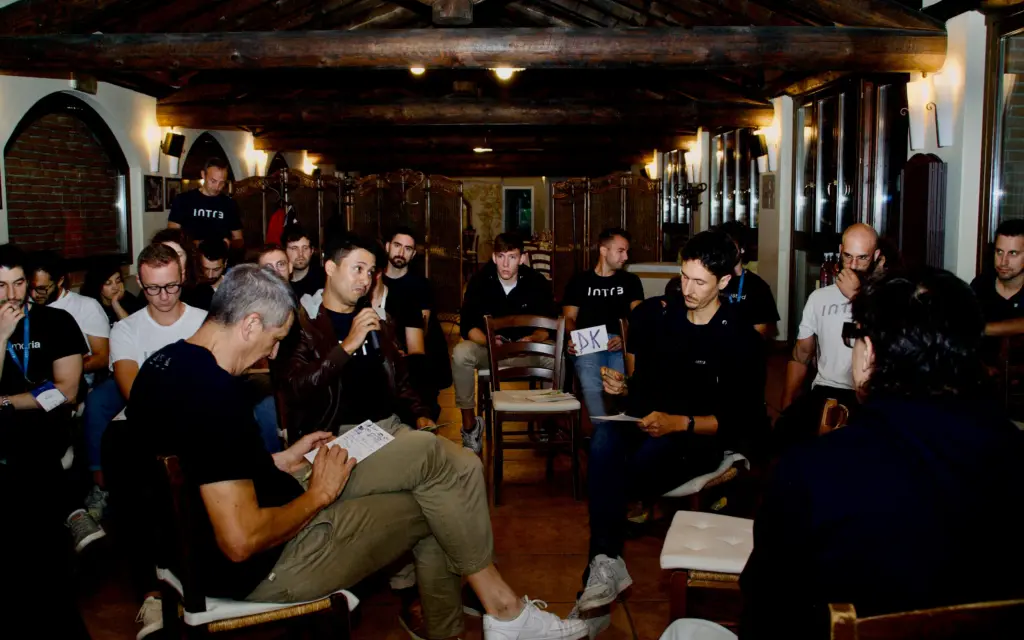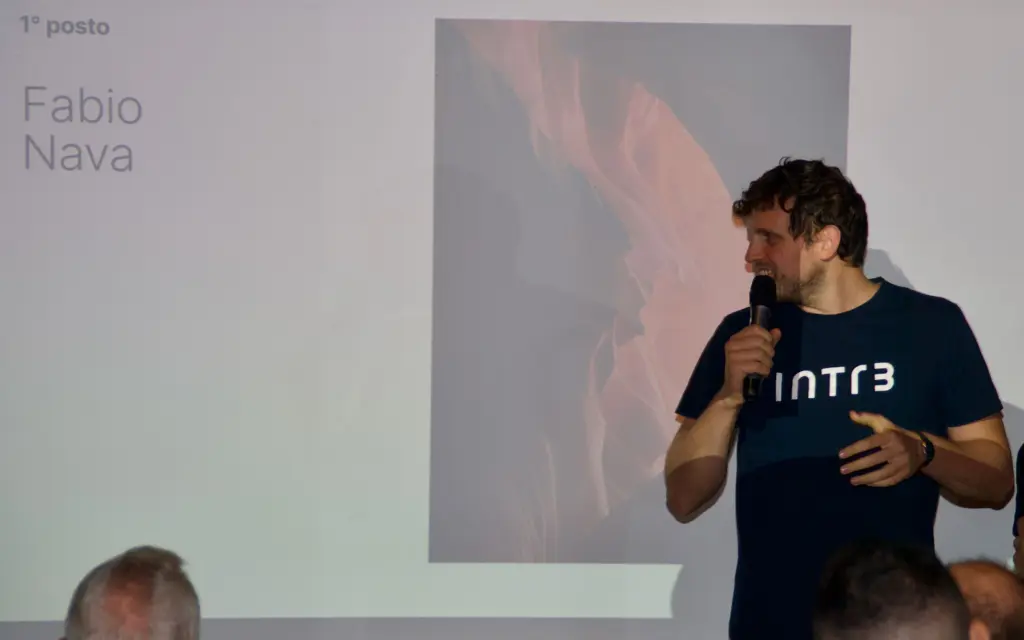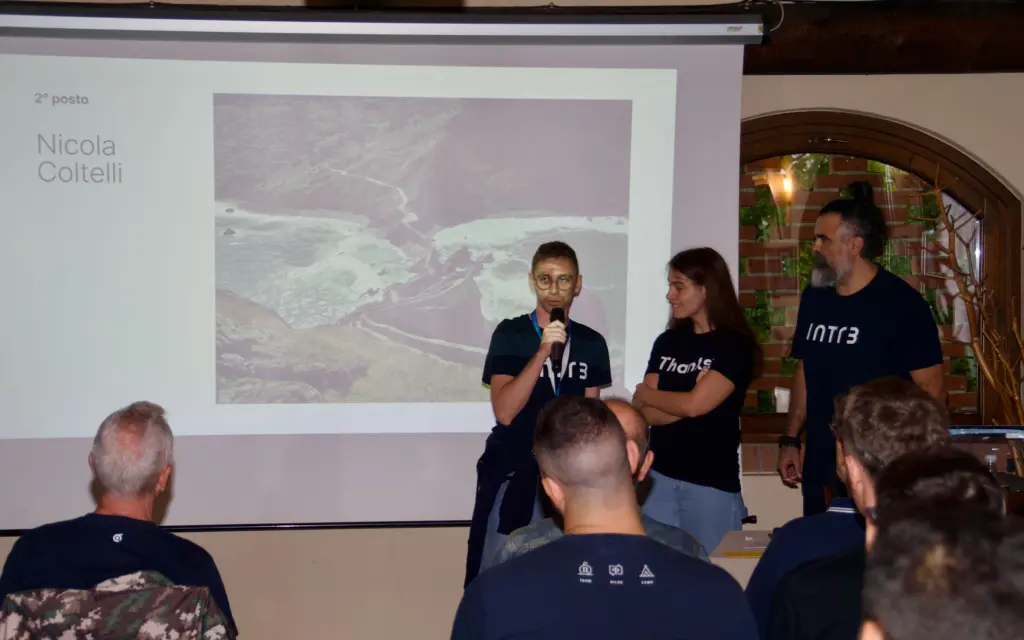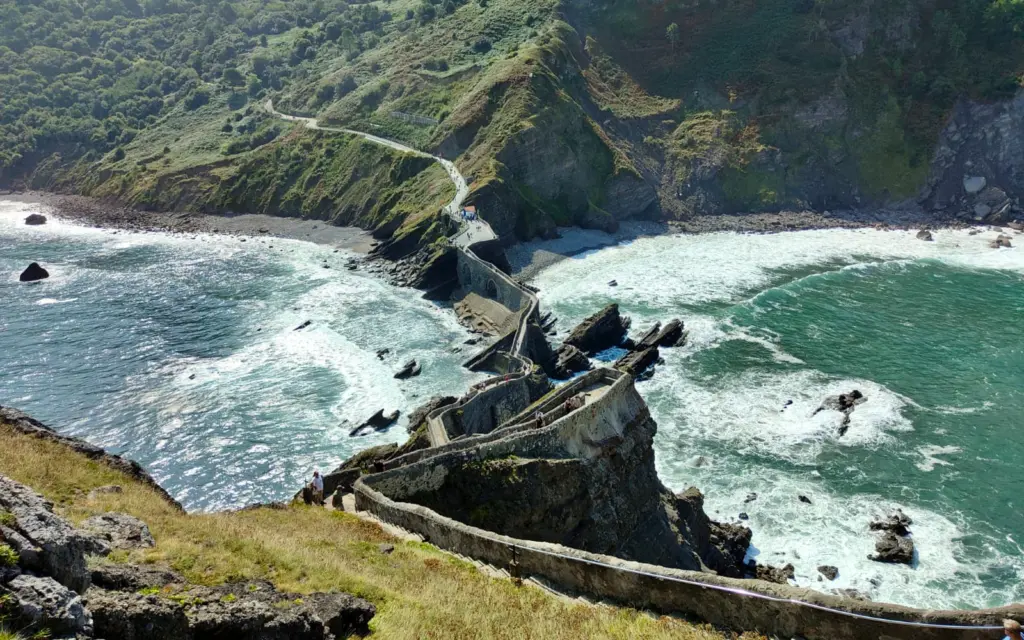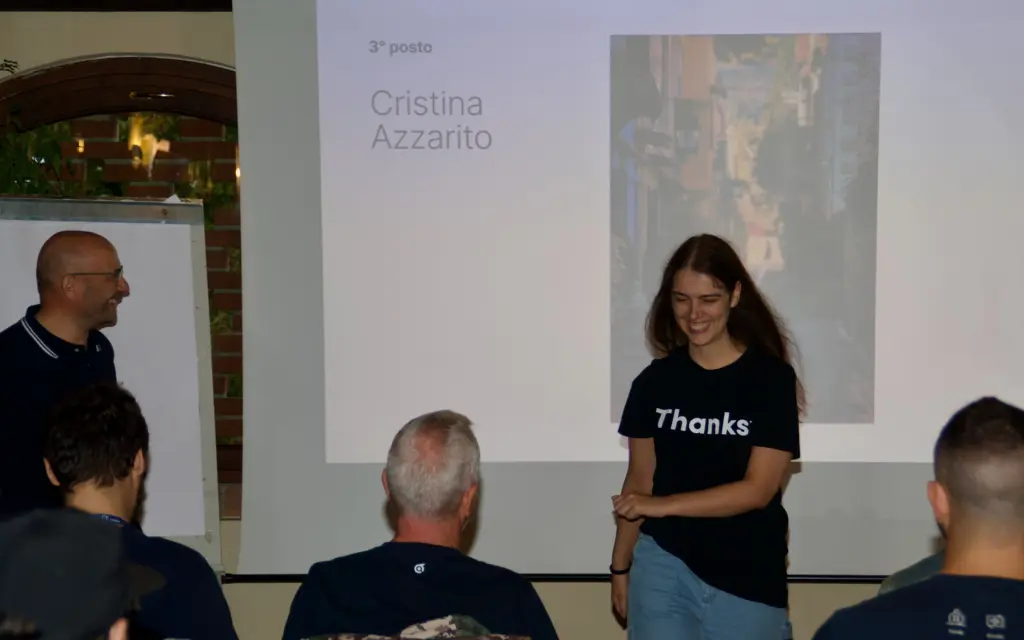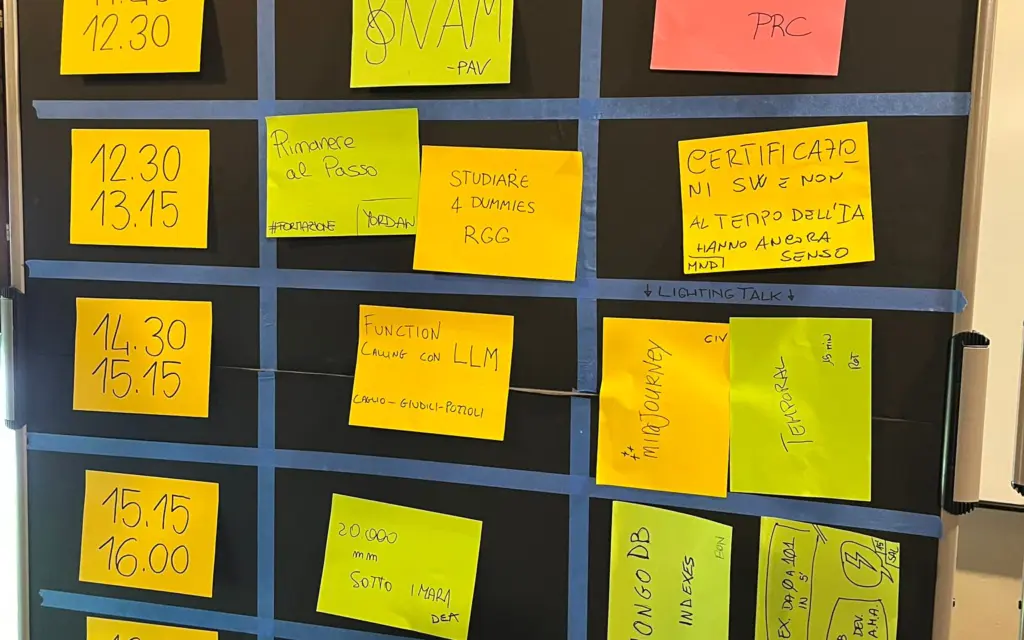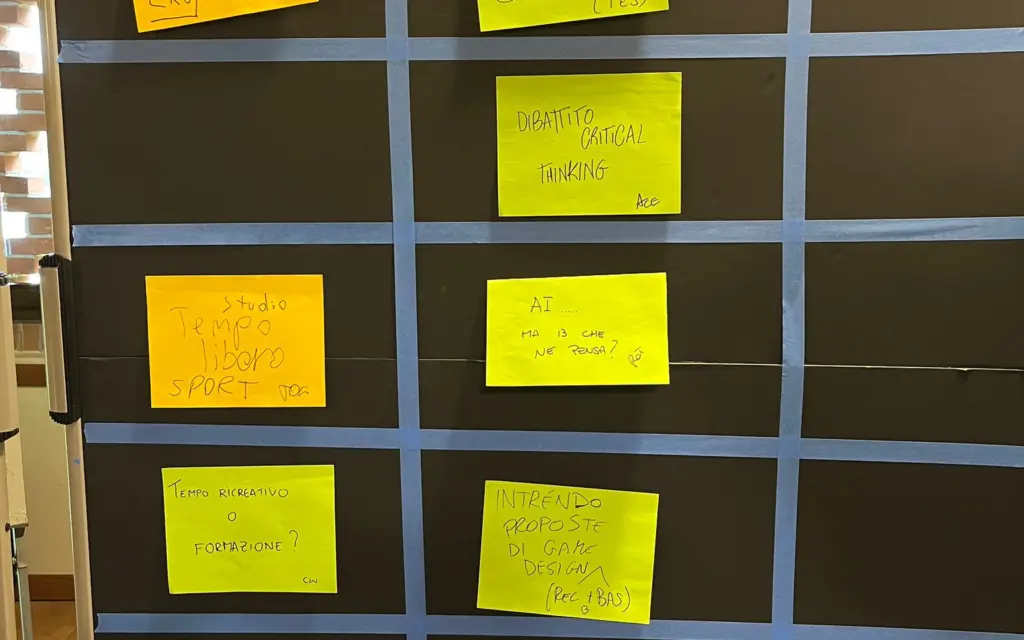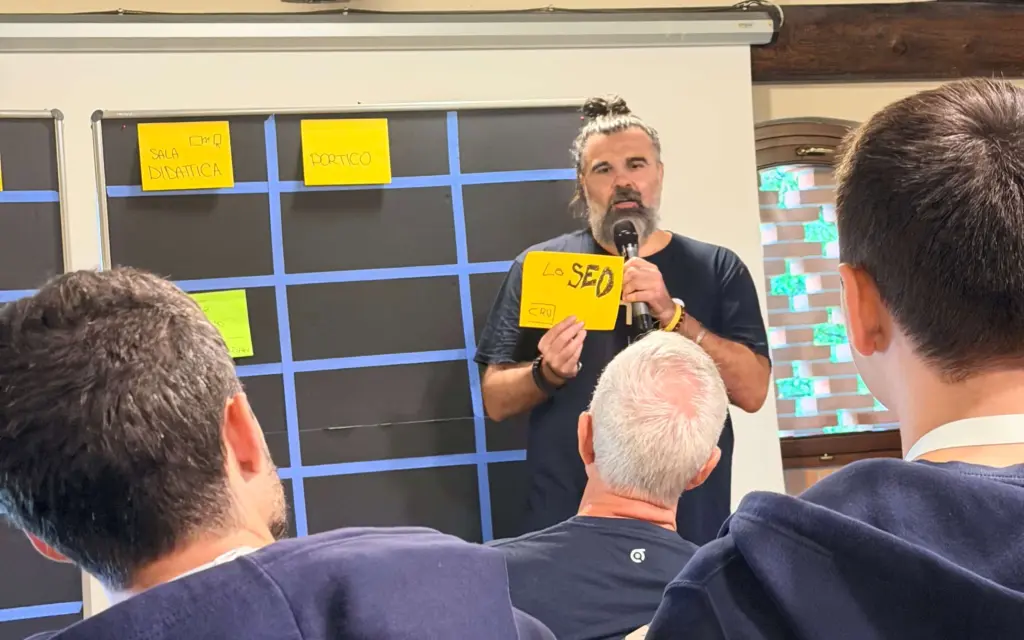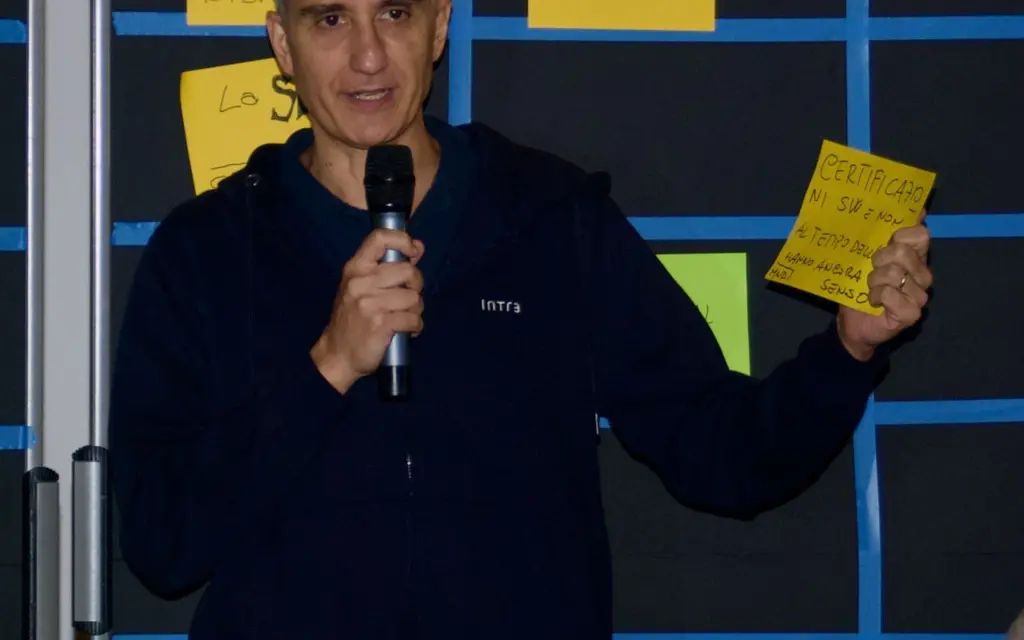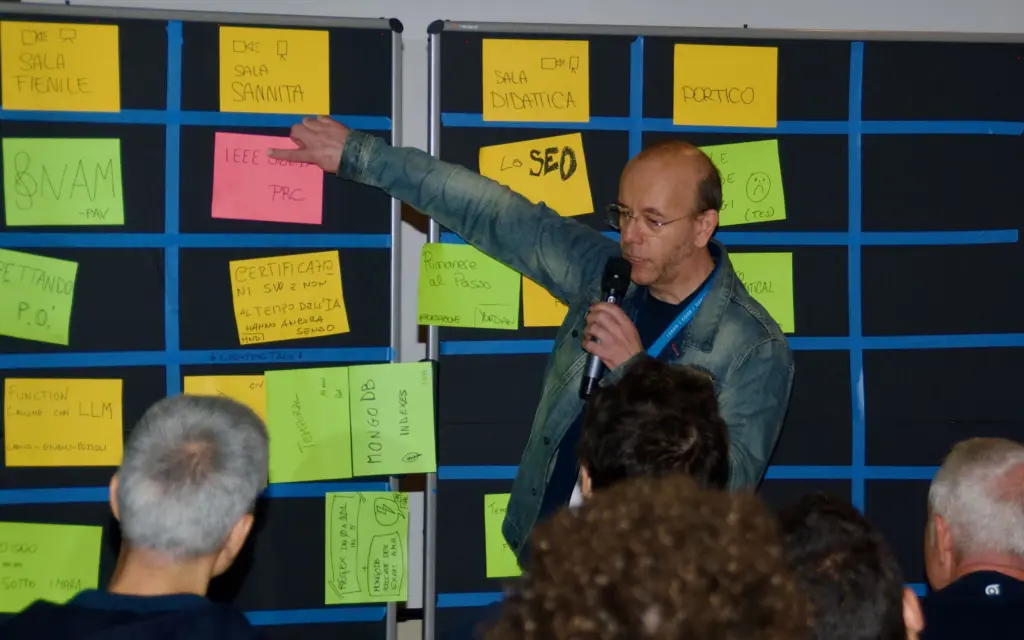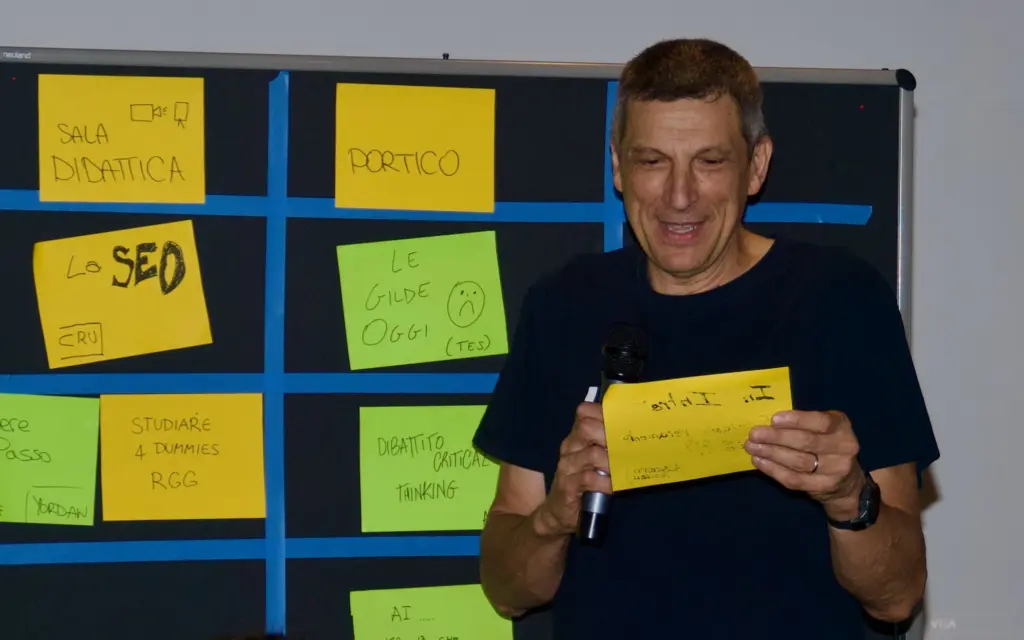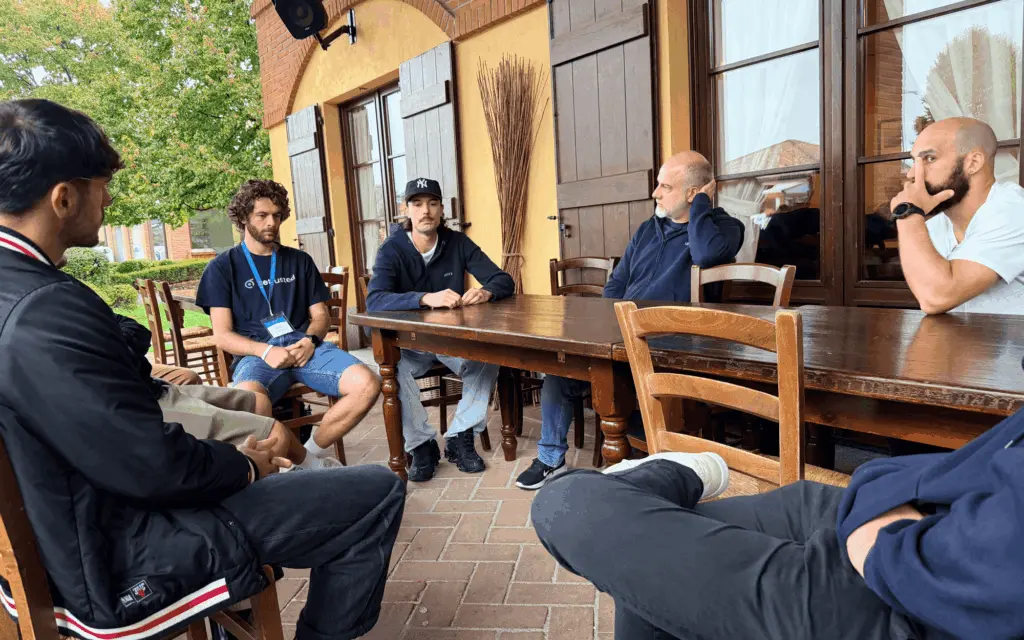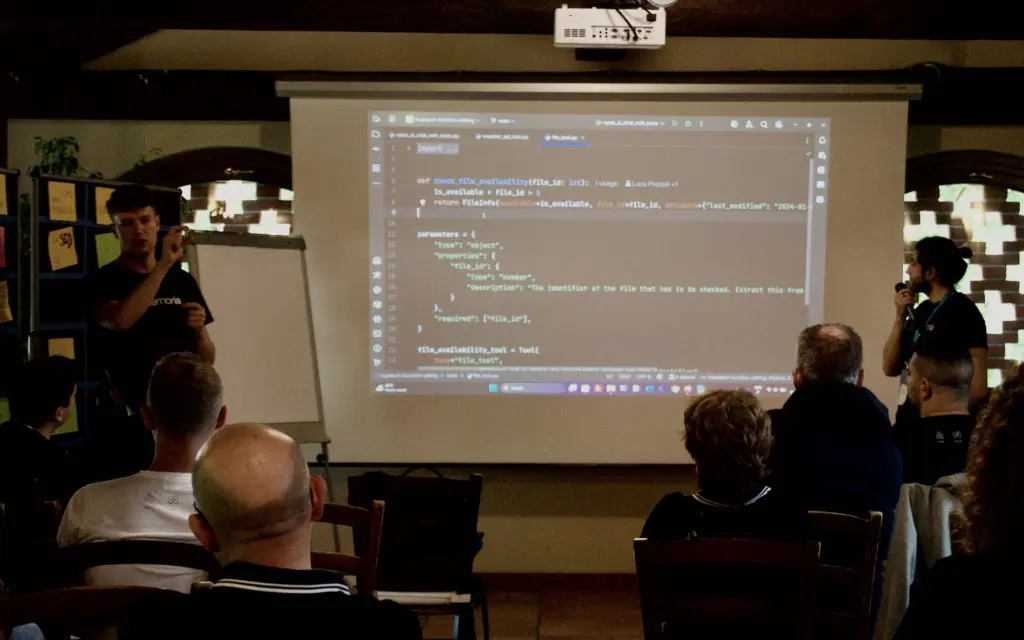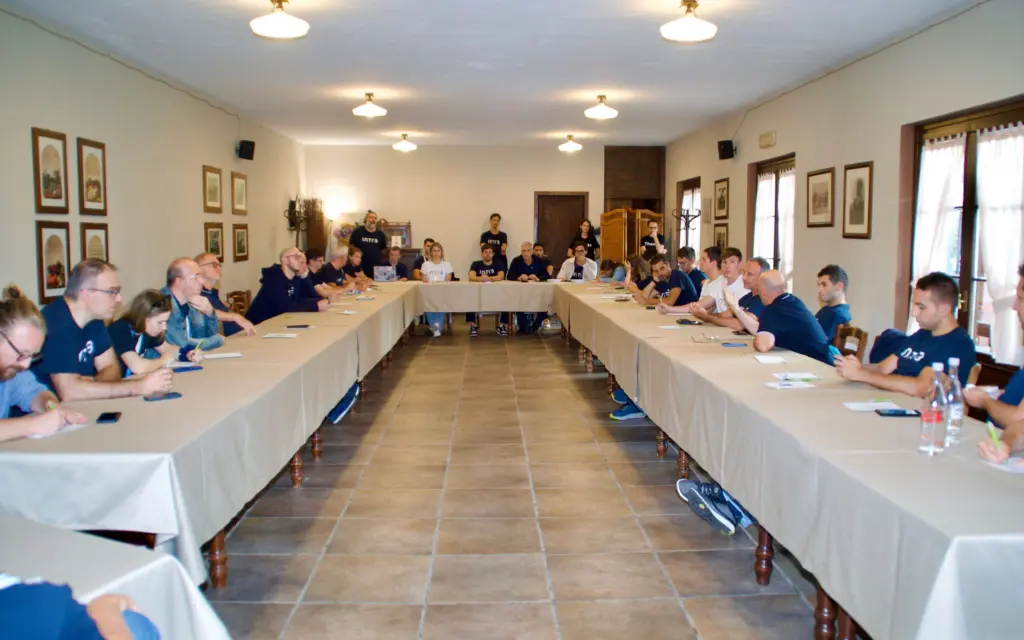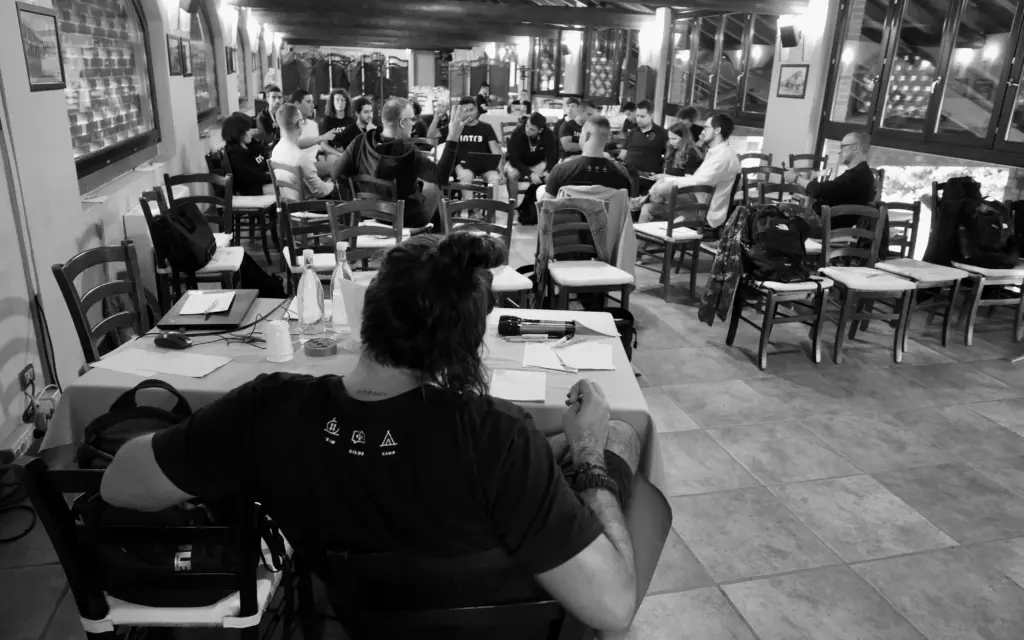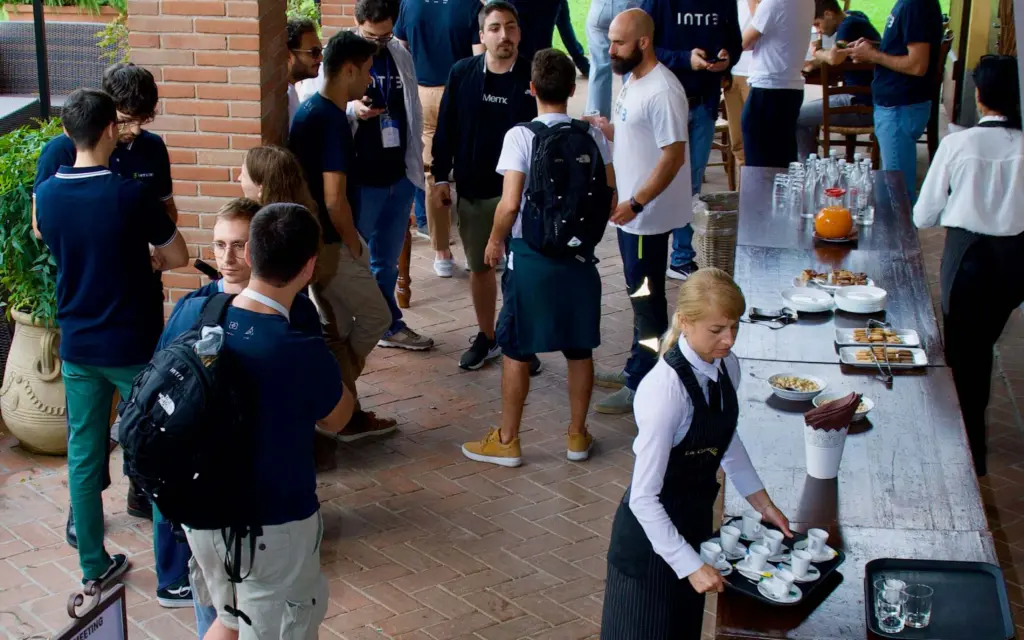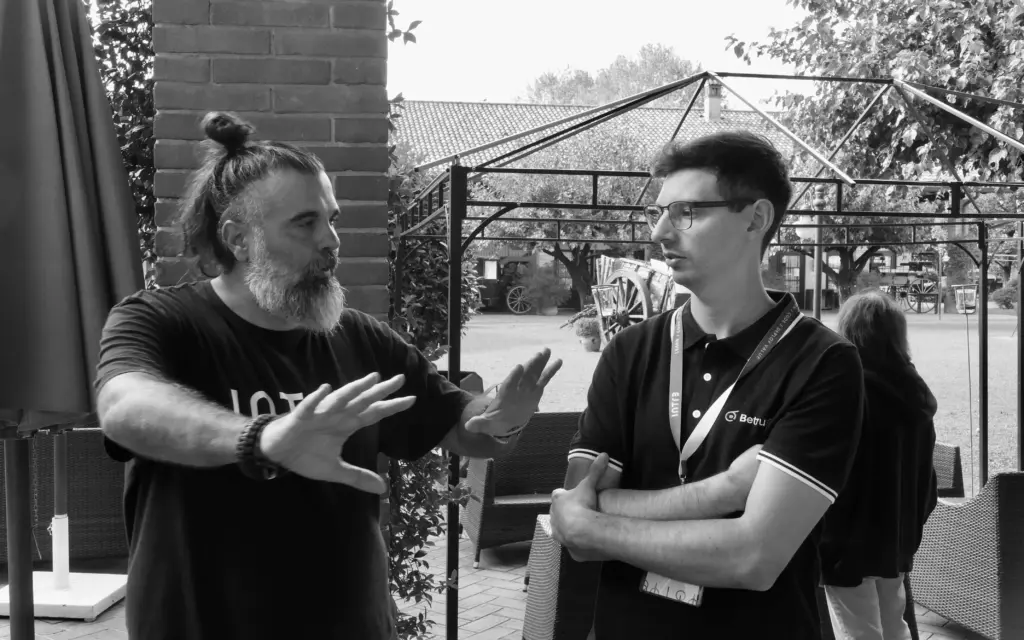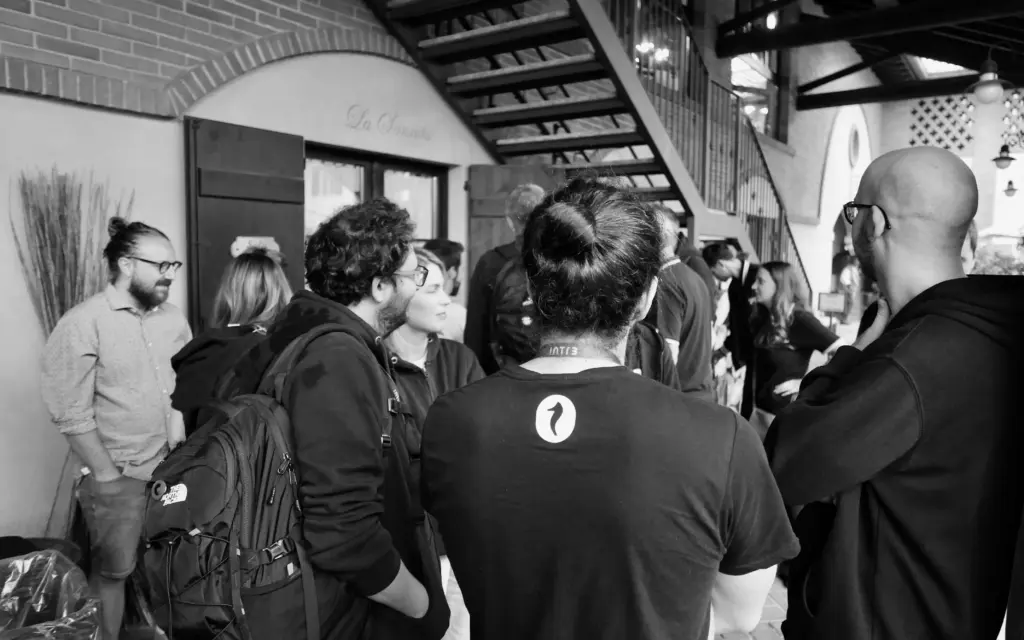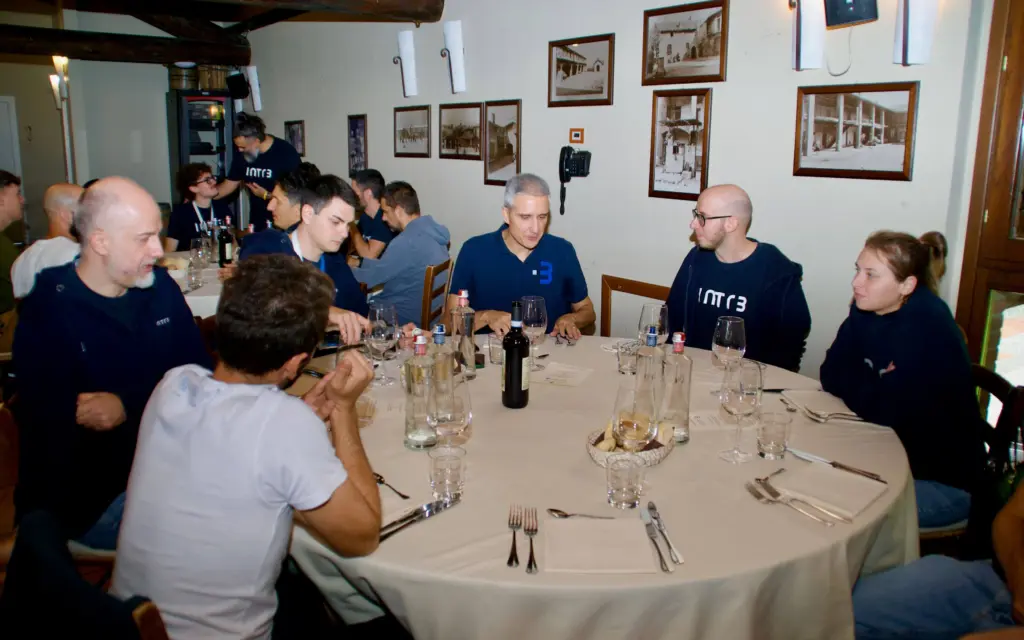Intré Camp 22 September 2025 – La Camilla
In this article we share the experience of the Intré Camp held on September 22, 2025, hosted at La Camilla in Concorezzo (MB).
It was a day out of the ordinary: instead of the usual “gildonference,” one of the two recurring sessions of each camp, we chose to dedicate space to a more extended unconference and, above all, to a collective exchange in the fishbowl format.
Enjoy the read!
Opening of the Day
The introductory session of the Intré Camp began with updates on Intré’s progress and upcoming initiatives, followed by contributions from the leaders of two of our Business Units.
Francesco Rigillo, CEO of Intré and Betrusted, presented an overview of the business and the results achieved as of September 2025.
Afterwards, Davide Ornaghi and Andrea Caglio shared updates on the journeys of Betrusted and Memoria, Business Units within the Intré ecosystem focused respectively on cybersecurity and AI.
To close this first session, Fabio Ghislandi, Executive Agile Coach and partner at Intré, introduced colleagues who recently joined the company:
Fishbowl
In recent years, we have been experiencing yet another revolution: the rise of Artificial Intelligence, or AI.
Like it or not, AI tools are increasingly part of both our work and daily lives—think of Copilot, the widely used ChatGPT, Gemini, DeepSeek, and many more.
But how is AI truly impacting our lives, both professionally and personally? And how are we, as individuals, responding to these tools?
At this Intré Camp we decided to take some time to talk about it together—there could not have been a better occasion.
To do so, we experimented with the fishbowl model, a facilitation technique that alternates between listening and active participation. Participants are arranged in two concentric circles: those in the outer circle listen, while the conversation takes place in the inner circle. The inner circle is made up of four chairs: three occupied by speakers and one that must always remain empty. This empty chair allows someone from the outside to join the discussion, provided that one of the other seats is freed. In this way, each new entry promotes the rotation of participants.
The fishbowl method is particularly effective for addressing sensitive topics or sharing diverse ideas and perspectives. Unlike an open group discussion—which can become dispersive and dominated by the most active voices—this format gives everyone the chance to contribute in a balanced way.
The experiment turned out to be a success. We explored a topic that often emerges in everyday conversations—around desks or during calls—where opinions are many and varied. The fishbowl gave us an “institutional” moment to discuss it: a starting point that certainly doesn’t end here.
Best Summer Holiday Photo
In the months leading up to this Intré Camp, the contest dedicated to the most beautiful summer photos was launched once again. As in previous editions, the competition was well received: a total of 22 photos submitted!
Through a company-wide survey, the three best shots were selected, taken by:
- Fabio Nava
- Nicola Coltelli
- Cristina Azzarito
Congratulations to the winners and thanks to everyone who participated, sharing truly wonderful snapshots of this summer 2025.
The Unconference Marketplace
Fabio Ghislandi, Executive Agile Coach and partner at Intré, facilitated the marketplace, the moment when the unconference agenda is defined: each participant, post-it in hand, presents their session and places it in one of the available time slots.
At the end of the presentations, time was dedicated to confirm the proposed configuration or make adjustments, following a single rule: only the person suggesting the change, together with the owner of the involved post-it, can decide on the modification.
Unconference
Open discussions, presentations of individual and group studies, and sharing of personal experiences are some of the types of sessions offered during this larger and more participatory unconference.
Below is a summary of some of the sessions.
The SEO
Luca Cruciani addressed a topic both valuable and challenging for those working in web content and marketing: SEO (Search Engine Optimization). In practice, SEO is the set of techniques that improve a website’s ranking in the organic results of search engines.
During his talk, Luca explored the core concepts of SEO, focusing in particular on backlinks and the actions we can take to strengthen them for our websites. We also reviewed the most useful tools for creating high-quality content, monitoring website performance, and opened the discussion on the future of SEO: GEO (Generative Engine Optimization).
Software Certifications – Do They Still Matter in the Age of AI?
Carlo Mandelli shared his experience with Mid-Level Angular Developer certification, which led him to reflect on whether, in a period strongly driven by artificial intelligence, it still makes sense to invest time and energy in certifications specific to a programming language.
Here are Carlo’s main concerns:
- the risk of spending time studying for a certification that is not applied immediately, with the consequence of forgetting part of the knowledge and ending up with skills that quickly become outdated;
- the need to remain flexible: how many certifications are truly necessary? And to what extent is it possible to manage them and keep them up to date over time?
- the opportunity to focus not so much on traditional certifications, but rather on learning how to best leverage AI to solve problems, given that AI is already capable of suggesting ready-to-use code or procedures.
During the open discussion, several insights emerged:
- certification may be a requirement to access certain job positions;
- it can be a necessary requirement for a company to acquire clients;
- it provides a level of competence useful for evaluating whether AI-generated code is correct, since today it often does not yet achieve the desired quality;
- the certification process, through study, helps to develop a problem-solving mindset that goes beyond a single programming language;
- in the future, certifications will probably be less tied to a specific language and more focused on the ability to solve problems and to clearly describe them to AI in order to obtain better code.
In conclusion, yes: today a certification can still represent real value, both for a professional’s growth and for meeting workplace requirements.
Function Calling with LLM
Andrea Caglio, Luca Giudici, and Luca Pozzoli explored Function Calling with Large Language Models, a feature that enables LLMs not only to generate text but also to interact with external systems by invoking functions as if they were built-in tools. During the session, they demonstrated how, starting from a user request, the model can autonomously decide to call the available functions, providing the necessary parameters in the correct format.
The presentation concluded with practical examples that showcased the concrete application of this approach.
IEEE 802.1x
In his presentation, Daniele Percivaldi shared what he learned about the IEEE 802.1x protocol in relation to Ethernet connections. With this knowledge, the goal is to further strengthen the security of Intré’s network first, and then that of its clients. A step forward toward a higher quality standard that can distinguish Intré in the networking and security market.
Critical Thinking on Technological Progress
Roberto Aceti initiated an open discussion on whether technological progress is truly improving human life and if it is doing so in an ethical way. Talking about ethics in 45 minutes is no easy task, nor is addressing the vastness of technological progress. Yet these are questions every developer today must ask themselves and explore further. Infinite scrolling, drones for military purposes, AI acting like psychologists—these are just a few of the latest technological innovations we reflected on. As developers, what role do we play in all of this? The question remains on the table, one we carry with us every day.
What I learned about Midjourney
Miriam Civiero showed us her work with Midjourney, which she did during her summer job. Miriam showed us her experiments, how to write the best prompts, and how to play with the parameters to make the image we visualise in our heads become real.
Conclusion
At the end of the last track of the unconference, we gathered in the common room to share feedback on the experience and conclude this intense day together.
See you at the next Intré Camp, scheduled for February 2026.
See you next time!
